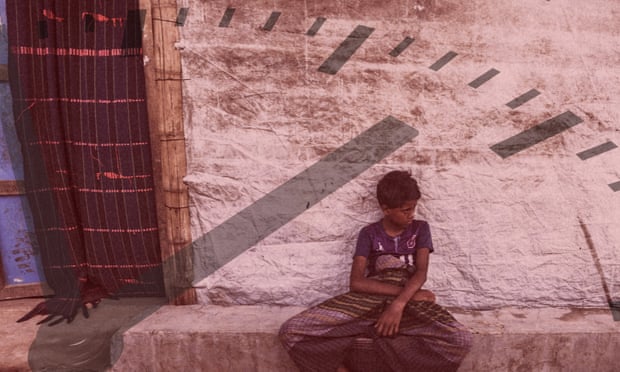Rohingya crisis: plight of Myanmar’s displaced people explained in 30 seconds by Kaamil Ahmed

It has been five years since Myanmar’s military launched a campaign of massacres that killed about 7,000 Rohingya in a single month and compelled 700,000 to flee for the Bangladeshi border.
Since the first major military operation against the Rohingya minority in 1978, which forced out 200,000, the Rohingya have been collectively stripped of their citizenship and targeted by increasing violence and discrimination that culminated in the “clearance operations” that began on 25 August 2017. Those operations were years in the planning, according to military documents uncovered by the Commission for International Justice and Accountability and sent to the international criminal court.
One million Rohingya have been left to live in shelters in Bangladesh designed only to be temporary – made of bamboo and tarpaulin that offer little resistance to regular fires and flooding.
More than 100,000 have been moved to Bhasan Char, a remote island camp in the Bay of Bengal, while a fence was built around the rest of the camps, stopping Rohingya moving without permission. Rohingya are not allowed to work and Rohingya-run education centres for secondary-level children have been closed.
No other country has helped Bangladesh by taking refugees in, and a return to Myanmar is a remote prospect. The military coup of 2021 means the country is no safer than it was five years ago and the country has done nothing to improve conditions or indicate that it would recognise the Rohingya as citizens. Many of their villages have been turned into military bases or simply swallowed by the vegetation.
Comments
Post a Comment